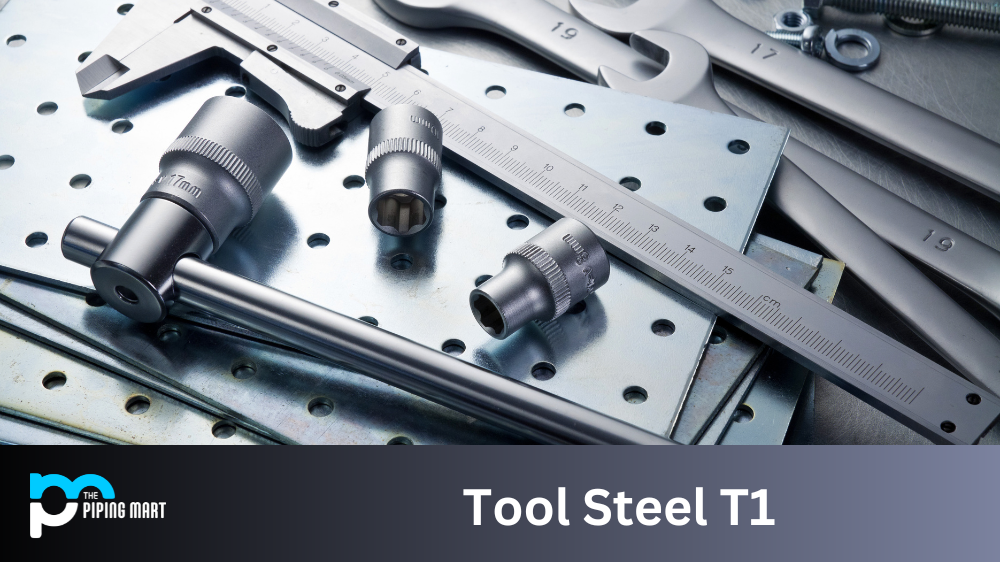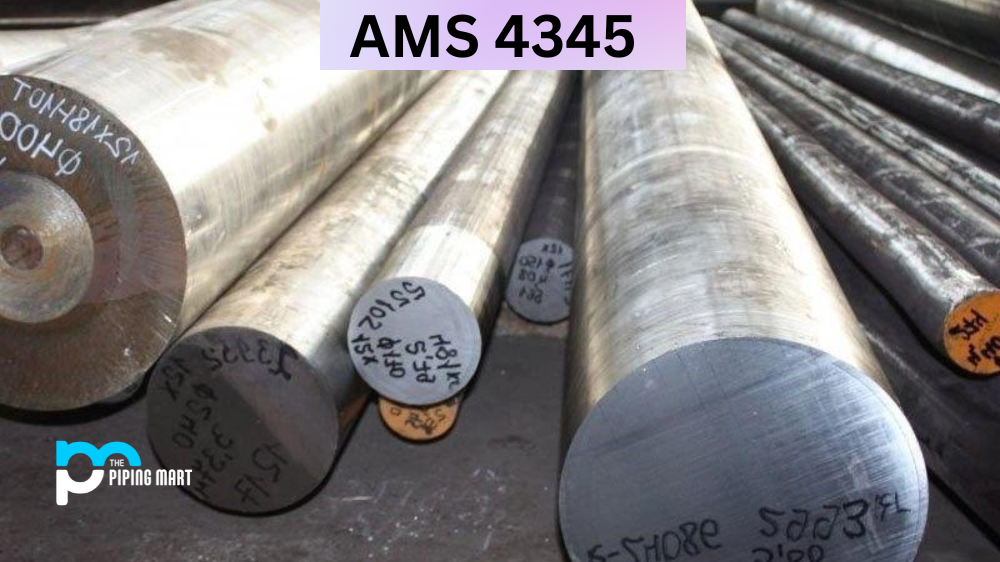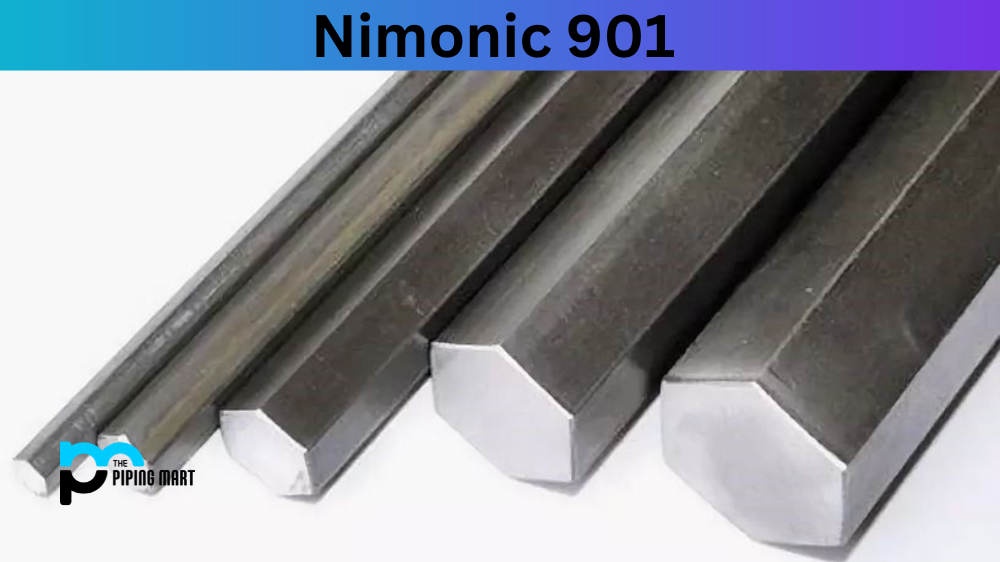Tool steel T1 is an alloy often used in high-speed cutting tools. It contains tungsten, molybdenum, and cobalt as the primary alloying elements. This type of steel is known for its strength, hardness, and wear resistance. In this guide, we’ll explain what tool steel T1 is and discuss its composition, chemical properties, mechanical properties, physical properties, uses corrosion resistance, heat resistance, heat treatment options, and machining techniques.
What is T1 Tool Steel?
ASTM T1 tool steel is one of the original tungsten high-speed steels. However, all tungsten steel grades are used to a limited extent because of the cost and questionable availability of tungsten. Of the T group steels, the general-purpose T1 tool steels and the high-vanadium-cobalt T15 are most commonly used.
T1 high-speed steel is air or oil-hardening tool steel with good comprehensive performance. HSS T1 tool steel has a high hardness (HRC62~66), strength, toughness and heat resistance, an excellent cutting tool material. T-1 tool steel grade is, on the whole, used for turning, planning & slotting instruments, tapes, twist drill, threading dies, profile slicing instruments, broaching instruments & reamers.
What Forms is T1 Tool Steel Available at Piping Mart?
- T1 Tool Steel Bars
- T1 Tool Steel Bolts
- T1 Tool Steel Pipes
- T1 Tool Steel Screw
- T1 Tool Steel Tubing
- T1 Tool Steel Valves
- T1 Tool Steel Washers
T1 Tool Steel Composition
Tool steel T1 contains
- Tungsten (W) is the primary alloying element at 0.90 to 1.00 percent.
- Molybdenum (Mo) at 0.25 to 0.50 percent.
- Cobalt (Co) at 0.50 to 0.70 percent by mass or weight percentage [MPMPS].
Other alloying elements found in tool steel T1 include manganese (Mn), carbon (C), vanadium (V), nickel (Ni), chromium (Cr), silicon (Si), copper (Cu), sulfur (S), lead (Pb), phosphorus(P). The total mass or weight percentage of these other alloying elements does not exceed 0.40 percent each.
| lement | Content (%) |
|---|---|
| C | 0.65-0.80 |
| Mn | 0.10-0.40 |
| Si | 0.20-0.40 |
| Cr | 3.75-4.00 |
| Ni | 0.3 |
| W | 17.25-18.75 |
| V | 0.90-1.30 |
| Cu | 0.25 |
| P | 0.03 |
| S | 0.03 |
UNS T12001 Tool Steel Chemical Properties
T1 Tool Steel exhibits good oxidation resistance and carburization properties due to its high chromium and low carbon content [MPMPS]. It also offers a high level of machinability due to its high sulfur content [MPMPS]. In addition to this excellent machinability, tool steel T1 has good shock absorption qualities due to its low carbon content [MPMPS].
T1 Tool Steel Mechanical Properties
The mechanical properties of tool steel T1 depend upon the amount of tungsten in the alloy [MPMPS]. The higher the tungsten content is in the alloy, the greater its strength will be [MPMPS]. For example, a tool steel with 1 percent tungsten has an ultimate tensile strength range from 1220 MPa to 1380 MPa and a yield strength range from 930 MPa to 1110 MPa [MPMPS]. Additionally, tool steel T1 has great toughness thanks to its molybdenum content, which allows it to resist chipping under stress [MPMPS].
| Properties | Metric | Imperial |
|---|---|---|
| Hardness, Rockwell C | 63.0 – 65.0 | 63.0 – 65.0 |
| Poisson’s ratio | 0.27-0.30 | 0.27-0.30 |
| Elastic modulus | 190-210 GPa | 27557-30457 ksi |
T1 Tool Steel Physical Properties
Tool steel T1 is a commonly used high-speed tool renowned for its toughness and wear protection. It has excellent drilling and milling characteristics and excellent machinability. Due to this impressive versatility, it has been a favourite choice among industry professionals for many years. T1’s physical properties include an average oxygen content of 0.10%, a carbon content of 0.85%, and a chromium content of 5%. This exceptional combination leads to outstanding hardness, with the ability to reach Rockwell C66 or higher, along with superior red hardness – enabling parts to remain in use even under extensive cutting applications. The strength of T1 also makes it suitable for use in tools requiring an increased abrasion resistance in highly stressed components such as aeroplane parts. The dependable performance offered by the remarkable tool steel T1 comes with an affordable price tag, making it the preferred choice for any cost-conscious project where optimum quality is a priority requirement.
| Properties | Metric | Imperial |
| Density | 8.67 g/cm3 | 0.313 lb/in3 |
1.3355 Thermal Properties
| Properties | Conditions | ||
|---|---|---|---|
| T (°C) | Treatment | ||
| Thermal expansion | 9.7 x 10-6/ºC | 20-200 more | – |
| Thermal conductivity | 19.9 x W/m-K | 100 more | – |
T1 Steel Equivalent
Equivalent materials to T1 tool steels are:
-
- AFNOR 18-04-01
- DIN 1.3355
- UNI X 75 W 18 KU
- JIS SKH2
- B.S. BT 1
- AMS 5626
- ASTM A600
- FED QQ-T-590
- SAE J437
- SAE J438
T1 Tool Steel Specifications
W-Nr: 1.3355
DIN: HS18-0-1
JIS/KS: SKH2
UNS: T12001
T1 Tool Steel Uses
T1 tool steel is a high-speed, tungsten-based alloy renowned for its toughness and wear resistance. Its carbon content exceeding 0.6 per cent offers superior heat-treat response and hardenability. It can be used in applications such as cutting tools, dies, taps, punches, shear blades and cold work applications where durability matters most. Its high hardness and toughness at elevated temperatures makes it an ideal choice for manufacturing products in the aerospace industry and industrial parts requiring both strength and impact resistance.
Tool Steel T1 Corrosion Resistance
Tool steel T1 is popular in many industrial settings due to its superior corrosion and shock resistance. Typically, this type of steel contains elements like chromium, molybdenum, tungsten, and vanadium, creating an alloy highly resistant to acidic or saline environments. The steel also braces well against high-stress cracking, warping, and other malformations. UNS T12001 suits industrial operations where moisture or corrosive agents could compromise lesser materials. Indeed, it is considered one of the go-to solutions for any industrial environment where optimal protection from the elements is desired.
Tool Steel T1 Heat Resistance
T1 Metal is an essential material for many industries, and its heat resistance is important in many applications. T1 is a type of tool steel with excellent heat resistance, making it a popular choice for tools and machinery that can withstand higher temperatures. Its top qualities make it one of the most sought-after tool steel available today. It can tolerate temperatures up to 650°C and last longer than other kinds, which makes it ideal for components like gears, dies, and cutting tools. Additionally, its composition increases wear and abrasion resistance, which means it can endure tougher operations than other steels with similar properties. T1 provides plenty of advantages that are hard to find anywhere else, so when you need a solid and reliable piece of tool steel for your project, then T1 is definitely the way to go.
T1 Tool Steel Welding
T1 tool steel welding can be difficult due to its high carbon content. To ensure that the T1 steel weld is successful, preheating and post-heating are both essential components of the welding process. The type of wire used for the weld varies depending on whether spot or general welding occurs. Once properly heat-treated, this bold alloy will provide strength, wear resistance, and excellent shock force absorption, making it ideal for cold-working operations. T1 tool steel can become indispensable in any fabrication project with the correct welding processes and materials.
Tool Steel T1 Heat Treatment
UNS T12001 is a popular choice among metalworkers for its durability and heat resistance, so getting the proper heat treatment is important to ensure it achieves these characteristics. Specialists will recommend heating the metal to a specific temperature before allowing it to cool, followed by an annealing process where it can be further hardened. The cooling pattern also affects the metal’s properties and should be carefully controlled by experienced professionals to maximize the benefits of 1.3355. This specialized material can gain strength and shock resistance by properly following the protocol during the heat treatment for even more reliable industrial performance.
Tool Steel T1 Machining
Regarding machining, T1 Material steel has proven itself as a worthwhile investment for anyone in the metalworking industry. With its excellent wear resistance and ability to survive high temperatures, it’s no wonder why T1 is the material of choice for those often machining metal parts. It also offers great value because while its hardness means more power and a longer lifespan, its higher cost is offset by the quality – a cost that can be passed on to customers. With T1 tool steel, you get an incredibly robust product that will outlast other types of machine materials. This makes it a great choice for anyone serious about making durable metal parts at an affordable price.
Conclusion
Tool Steel T1 is an excellent choice for applications that require strong cutting tools such as saw blades or drill bits because it offers high levels of strength and wear resistance without sacrificing machinability or shock absorption qualities. Its composition includes tungsten for strength, molybdenum for toughness, cobalt for hardness, manganese for malleability, carbon for ductility, vanadium for wear resistance, nickel for corrosion resistance, chromium for oxidation resistance, silicon for increased machinability, copper for thermal stability; sulfur and lead for better casting performance; and phosphorus for improved heat treatment quality. Furthermore, it can be heat treated through quenching or tempering processes to achieve desired mechanical properties, such as increased hardness or toughness, depending on your application requirements. With all these benefits wrapped up into one package – Tool Steel T1 truly lives up to being one of the most versatile steels available today!

Pipingmart is B2B portal specializes in industrial, metal and piping products. Also, share latest information and news related to products, materials and different types grades to help business dealing in this industry.




